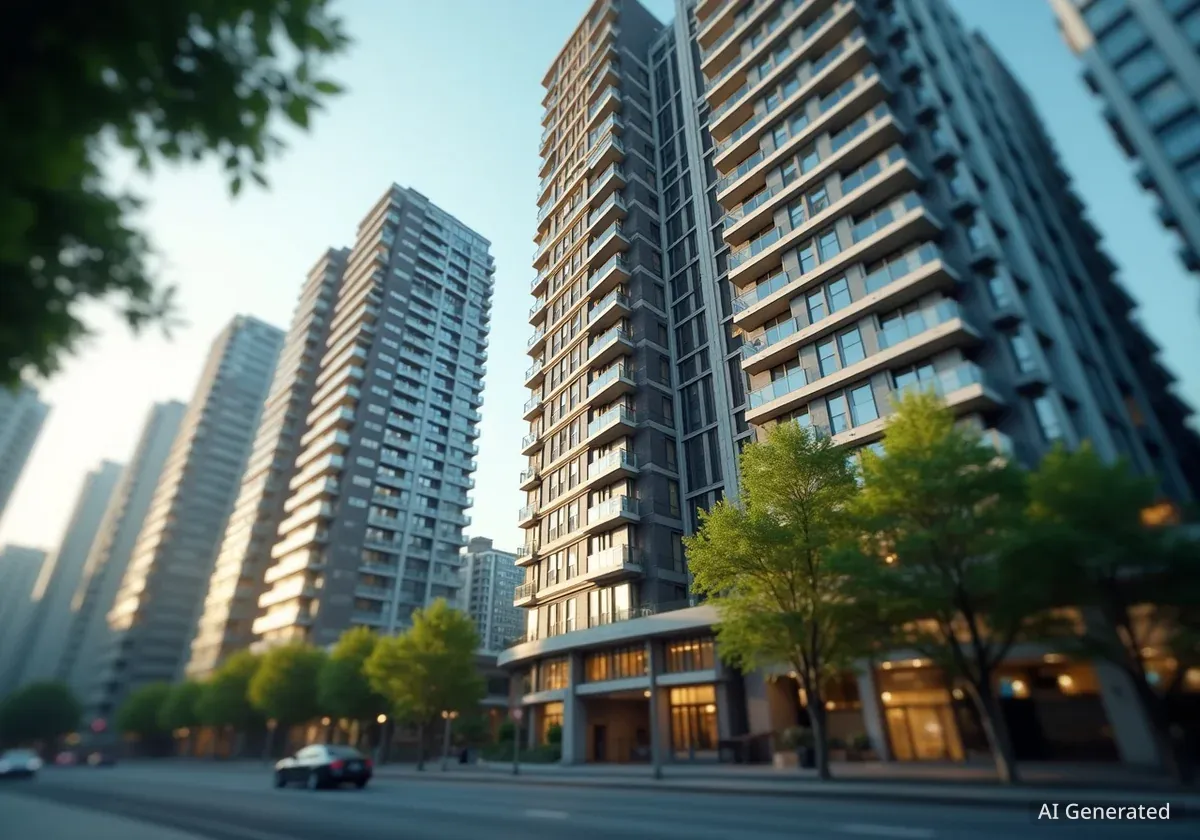South Korean Minister of Land, Infrastructure and Transport Kim Yun-duk announced on October 13, 2025, that the expansion of regulated real estate areas is "unavoidable." This statement suggests that new real estate measures, expected later this week, will broaden the scope of zones designated for stricter oversight, including speculative overheating zones and adjustment target areas. The announcement comes amidst ongoing efforts to stabilize the nation's property market.
Key Takeaways
- Minister Kim Yun-duk confirmed unavoidable expansion of real estate regulation.
- New measures, due this week, will target speculative overheating zones.
- Areas like Mapo, Seongdong, Gwangjin, and Bundang are likely to see new restrictions.
- The Ministry of Land, Infrastructure and Transport will not address mortgage limits or property taxes.
Government Confirms Stricter Property Market Controls
During a parliamentary audit of the Ministry of Land, Infrastructure and Transport, held at the National Assembly Land, Infrastructure and Transport Committee in Yeouido, Seoul, Minister Kim Yun-duk addressed questions from lawmakers. People Power Party Representative Kim Eun-hye asked directly if upcoming real estate measures would increase regulated areas. Minister Kim responded, "I believe it is unavoidable."
This declaration indicates a firm stance by the government to curb real estate speculation. It moves forward despite earlier reluctance from various ministries and Seoul City officials. These entities had expressed concerns about the potential ineffectiveness and unintended side effects of expanded regulations.
Fact: Regulated Zones
Regulated zones in South Korea are government-designated areas subject to stricter real estate rules. These can include limits on transactions, loan restrictions, and increased taxes. The goal is often to prevent overheating and stabilize housing prices.
Anticipated Expansion of Designated Areas
The Minister's comments suggest that the new measures will include expanding land transaction permit zones and designating more areas as speculative overheating zones. This move is designed to cool down specific property markets that have shown signs of rapid price increases and speculative investment.
Key areas expected to be impacted by these expanded regulations include several prominent districts within Seoul. Specifically, Mapo, Seongdong, and Gwangjin districts are anticipated to be added to the list of regulated zones. Additionally, Bundang in Gyeonggi Province, a major residential and commercial hub, is also expected to face new restrictions.
Rationale Behind the Decision
The government's decision to expand regulated areas stems from a consistent effort to manage housing affordability and prevent market instability. High demand and speculative buying in certain urban centers have driven up property prices, making homeownership challenging for many citizens. By increasing regulated zones, authorities aim to reduce speculative activity and foster a more stable real estate environment.
Minister Kim Yun-duk stated, "We aim to announce the real estate measures this week." This timeline highlights the urgency of the government's intervention.
Context: South Korean Real Estate Policy
South Korea has a history of implementing various real estate policies to manage its dynamic housing market. These policies often involve a mix of supply-side measures, demand-side controls, and taxation adjustments. The government frequently adjusts these regulations in response to market conditions and public sentiment regarding housing affordability.
Scope of the Upcoming Measures
While Minister Kim confirmed the expansion of regulated zones, he declined to comment on other potential policy changes. These include whether the current 600 million Korean won limit for mortgage loans for property purchases would be lowered. He also did not address if property holding taxes would increase. He cited that these specific matters fall outside the jurisdiction of his ministry.
This indicates a multi-ministerial approach to real estate policy, where different government bodies are responsible for distinct aspects of market regulation. The Ministry of Land, Infrastructure and Transport primarily focuses on land use, development, and the designation of regulated zones, while financial and tax policies are typically handled by other relevant ministries.
- Mortgage Loan Limits: The current limit of 600 million Korean won affects many potential homebuyers. Any change would significantly impact borrowing capacity.
- Property Holding Taxes: Increases in these taxes aim to deter multiple property ownership and speculation, encouraging owners to sell underutilized assets.
Market Reaction and Future Outlook
The anticipation of these new measures has already generated considerable discussion among real estate professionals, investors, and potential homebuyers. An expansion of regulated areas often leads to a cooling effect in the short term, with reduced transaction volumes and stabilized prices in the affected zones. However, it can also shift speculative activity to unregulated neighboring areas, a challenge policymakers continuously monitor.
The government's strategy is to create a more balanced and equitable housing market. This involves ensuring that real estate remains primarily a place of residence, rather than a primary tool for speculative investment. The efficacy of these expanded measures will be closely watched as they are implemented across critical urban and suburban areas.
Analysts suggest that continued government intervention reflects a commitment to long-term market stability. This approach aims to prevent the kind of rapid price escalations that can lead to economic bubbles and make housing unattainable for average citizens. The details of the new policies, once formally announced, will provide clearer insights into their specific impact and the government's full strategy.





